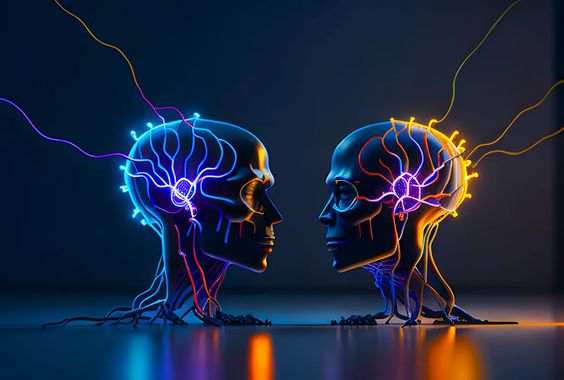In a groundbreaking move that could potentially revolutionize the field of artificial intelligence (AI), Swiss technology company FinalSpark has announced the launch of a program that allows researchers to utilize ‘biocomputers’ powered by human brain cells. With a monthly subscription cost of $500, these biocomputers promise a novel and sustainable means for training AI models, leveraging the complexity and efficiency of organic material.
Biocomputers Offering a Sustainable AI Future
The emergence of biocomputers as a tool for training artificial intelligence signifies a significant shift away from traditional, silicon-based systems. According to FinalSpark, this innovative approach could improve efficiency by an astonishing factor of up to 100,000 times. The harnessing of human brain cells, or organoids, marks a bold step towards creating more efficient and environmentally friendly AI technologies.
Fred Jordan, the visionary behind FinalSpark, introduced Neurospark—a platform that grants users direct online access to these living biocomputers. This new technology promises to open doors to uncharted territories in AI research and development, by providing a more naturalistic environment for training AI models.
Training AI with Brain Cells
The methodology behind training AI with human brain cells deviates significantly from traditional practices. Normally, numerical rewards are used to guide AI learning. However, in the context of biocomputers, biological methods take precedence. Scientists employ dopamine, a chemical associated with reward and pleasure in the human brain, to foster learning. They use electrical signals for negative feedback, thus mirroring the learning mechanisms of the human brain more closely.
Despite the innovative approach, these biocomputers face a limitation in their relatively short lifespan of approximately 100 days. Post this period, an AI system would need to be transferred to a new cell cluster to remain operational. This constraint notwithstanding, the technology illuminates a path towards developing AI systems that could someday have longer operational lifespans, potentially leading to machines that more accurately mirror human cognitive experiences.
Also Read: Coinbase CEO Advocates crypto Wallets for AI
The integration of brain cells in AI training is not just a technical leap but also an ethical and philosophical exploration into the blending of organic life with artificial systems. It raises intriguing questions about the future of AI and its convergence with human biological processes, hinting at a future where AI could exhibit learning and adaptation patterns akin to those of humans.
Moreover, this development could spearhead a new era in AI efficiency, significantly reducing the energy footprint associated with training complex AI models. In doing so, it aligns with growing concerns over the environmental impact of technological advancement, presenting an eco-friendly alternative that could reshape the landscape of AI research and its applications across various domains.
A Glimpse into the Future
As the conversation around ethical AI and sustainable technology continues to gain momentum, The initiative by FinalSpark may very well serve as a beacon, guiding the way towards more conscientious and harmonious integration of technology within our natural and societal frameworks. It underscores the potential for innovative approaches in tackling the dual challenges of technological advancement and environmental stewardship.
In summary, the launch of the biocomputer program by FinalSpark not only introduces a groundbreaking method for training AI but also propels us towards rethinking the fundamental interactions between technology and nature. As we stand on the brink of this new frontier, it is crucial to navigate the path ahead with caution, embracing the possibilities while remaining vigilant of the ethical implications and the impact on our planet. The journey of integrating human brain cells with AI is just beginning, and its full ramifications, both promising and daunting, await discovery.
